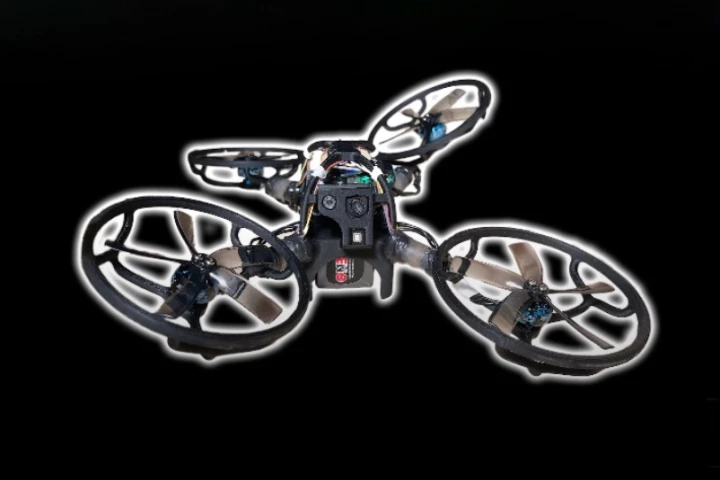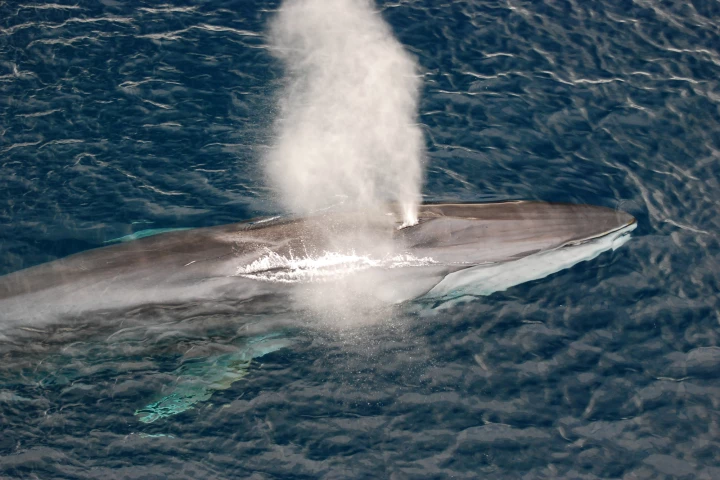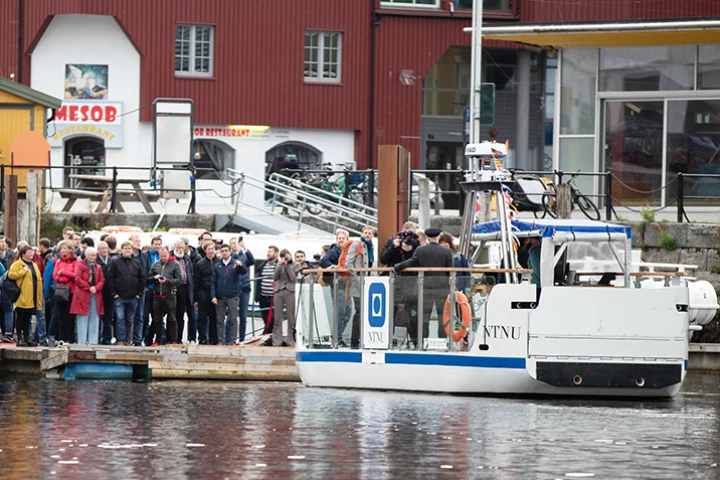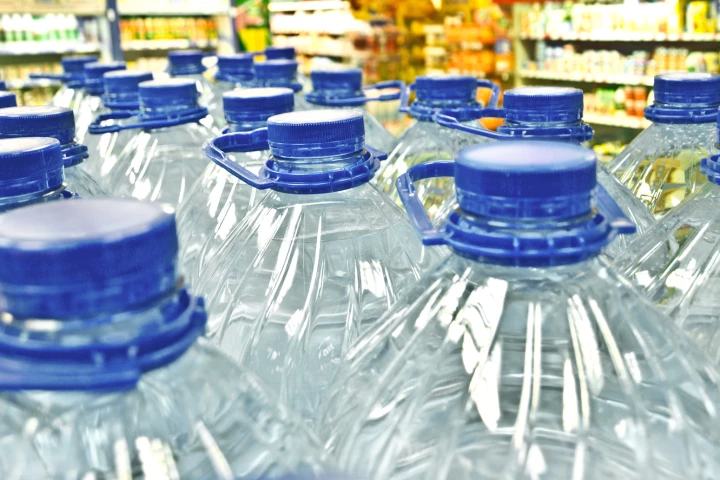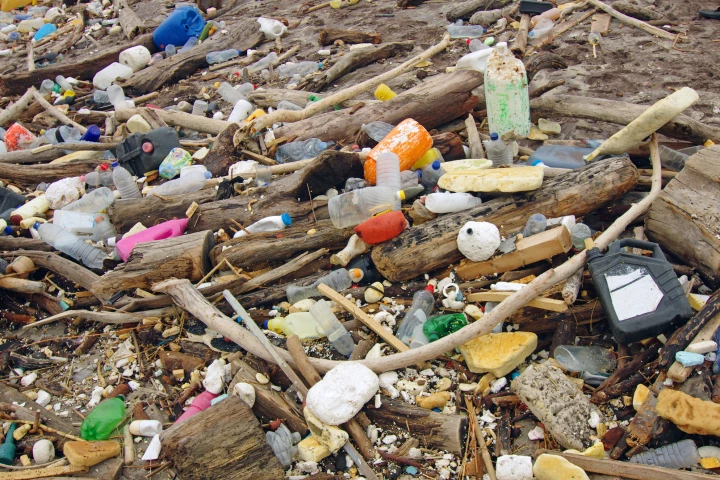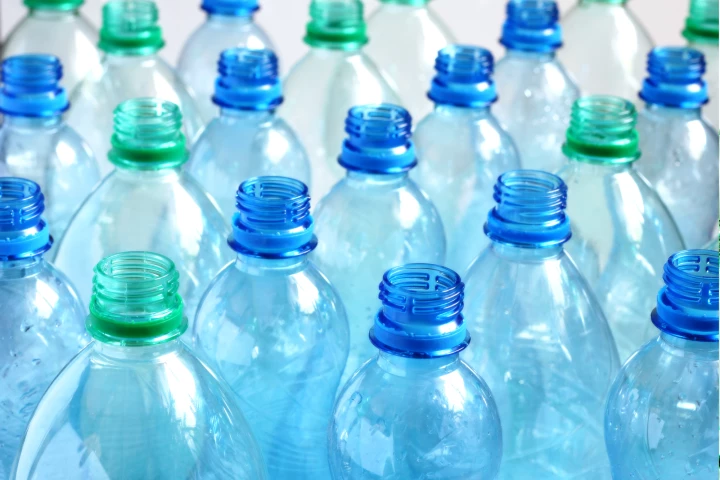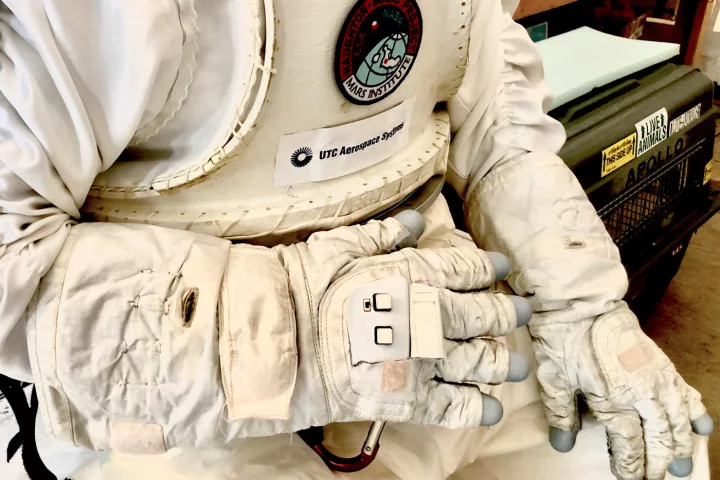Norwegian University of Science and Technology
-
A team of researchers might soon have you walking on desert sand, no matter how far from the dunes you might live. This group of engineers has developed a method to transform it into a new construction material that's perfect for pavements.
-
Speaking a language with different words for different color shades means the brain perceives those shades quicker than using a language with only one word for that color, highlighting the interaction between language and perception according to a new study.
-
Quadcopters may be agile but they're also relatively wide and delicate, limiting their potential uses. The Morphy drone addresses these drawbacks with flexible propeller arms which allow it to basically just "squish" its way through narrow spaces.
-
Global warming has caused many large whales to move from warmer waters, increasing the risk of being struck by ships. Researchers have used existing fiber-optic cables to track fin whales in real time, which may reduce the incidence of ship strikes.
-
Building bridges over waterways isn't a simple endeavor, which is why many cities instead look to ferries. With that fact in mind, a new autonomous electric passenger ferry is being trialled in Norway, and it's said to be the first of its kind.
-
Scientists at the Norwegian University of Science and Technology have found that chemicals in plastic could be helping drive rising rates of obesity around the world, by entering the human body and interfering with our metabolism.
-
When you see plastic trash washed up on the shore, don't you wish there was something you could do? Besides just picking it up, that is? Well, a new app may soon be able to determine where that garbage came from, so action can be taken.
-
Often made from plants, recycled material and various forms of organic matter, bioplastics promise a number of advantages over conventional plastics produced through fossil fuels, but a new study suggests that safety may not be one of them.
-
Marine aquaculture pens have to be regularly checked for holes, plus the fish need to be inspected for parasites. And although the job is typically performed by human divers, it turns out that a robotic sea turtle may be a better choice for the task.
-
Although drones or other robotic devices could certainly help astronauts to explore other planets, controlling the things while wearing spacesuit gloves would be a challenge. It was with this in mind that the Astronaut Smart Glove was created.
-
In the face of climate change, reindeer are resorting to eating kelp seaweed, according to new research. The creatures in question are Svalbard reindeer, a sub-species of wild reindeer.
-
Because fixed-wing drones are more energy-efficient than multicopters, they're often used for tasks such as mapping the ocean. Many of them require landing strips, however, which there isn't always room for on ships. A new technique gets around that problem, using copters to catch them.
Load More


